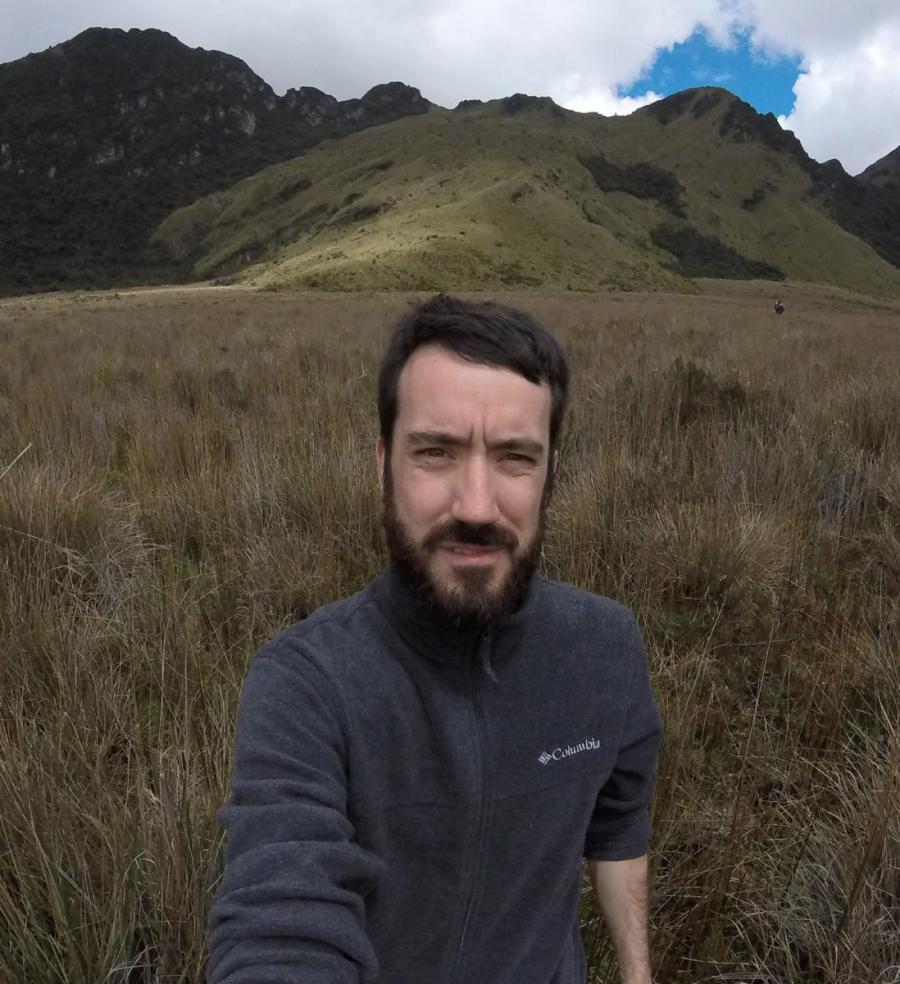SESYNC is excited to welcome Xavier Benito as a postdoctoral fellow!

Name: Xavier Benito
Ph.D.: Ecology
Hometown: Tortosa (Catalunya, Spain)
SESYNC Project: Critical transitions in Andean Socio-Environmental systems
How would you describe your primary field of study?
Aquatic ecology
What are the broad questions you are interested in studying?
I’m interested in how ecosystems respond to environmental changes at different spatial and temporal scales to better predict current and future ecosystem trajectories in the face of global change.
What inspired you to choose this field of study?
As a biologist and environmental scientist, interdisciplinary sustainability science is the main inspiration of my research. I’m fascinated by the study of palaeoecology (the ecology of the past) because integrate a suite of biophysical and anthropogenic data within a long-term perspective (i.e. centuries to millennia) for addressing key questions about the functioning of modern systems (‘historical profiling’).
Can you briefly describe your proposed SESYNC postdoctoral project?
At SESYNC, I will do research on the palaeoecological perspective of resilience applying time-series models in the Andean Páramo, a dynamic, coupled human-natural tropical grassland system. The overarching question of my proposed project is: what insights do abrupt transitions in the palaeoenvironmental record provide about the critical stressors and ecosystem response that give rise to the current state of Andean socio-ecological systems? Developing a framework that combines data at two disparate temporal scales (palaeoenvironmental and contemporary), the project will contribute methods and findings that should advance our understanding of regime shifts in complex socio-ecological systems.
Why is SESYNC the right place to undertake this research?
Regime shifts are complex by nature, and are rarely purely ecological or social. I want to push the boundaries of my research program to incorporate feedbacks between natural and human systems. I am convinced that integrative approaches that combines different historical and palaeoenvironmental profiles are needed to contextualize changes leading to current socio-environmental systems. The SESYNC fellowship will provide me tools to incorporate the human dimensions of global environmental change in my research by collaborating with SESYNC’s social scientists through the immersion program. The project will potentially cross-fertilize ongoing research on the topics of socio-environmental resilience and climate adaptation.
What are you reading right now?
As I become interested in resilience theory, I just started read Resilience Thinking: Sustaining Ecosystems and People in a Changing World by Briand Walker and David Salt. Also, I’m reading 2052: A Global Forecasts for the Next Forty Years by Jorgen Randers that evaluates where physical limitations of planet Earth are after forty years publication of the seminal book “The Limits of the Growth”.
